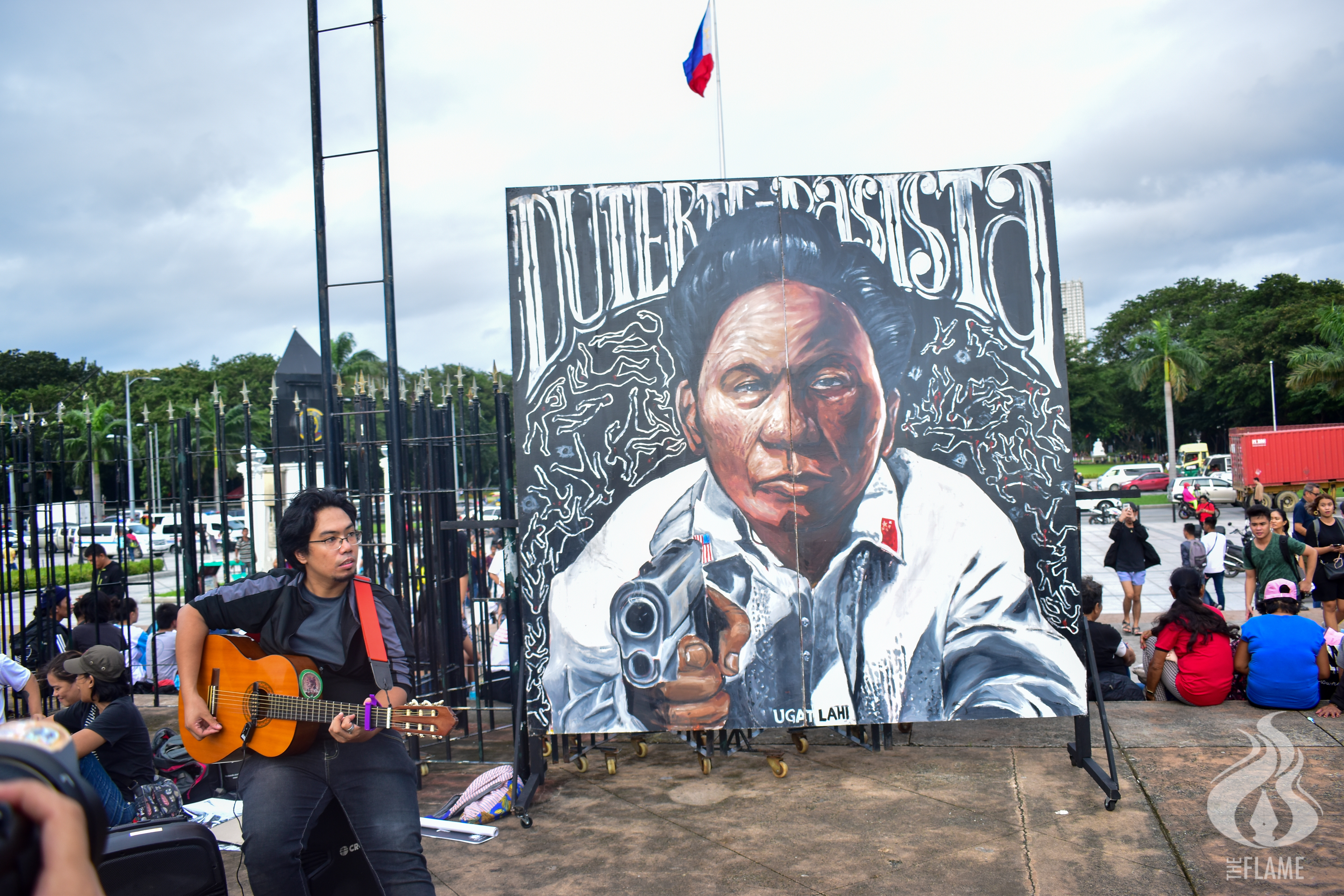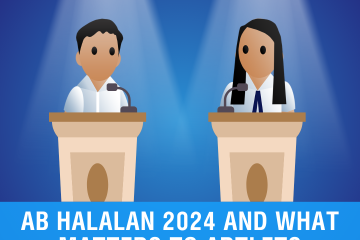
During the height of the late president Ferdinand Marcos’ regime, Marriane’s* father was hit on the stomach with a wooden baton by a police officer for violating the curfew.
Marriane’s father was just on his way home from work when the incident happened.
However, her father still believes that there is beauty in Marcos’ dictatorship because “it was really strict.”
“I told him that he wouldn’t be hit, no one would go missing, or be tortured to death if it’s (Marcos regime) really good back then,” Marriane told The Flame.
Unlike her father, Marriane is a firm believer that the Marcos dictatorship was one of the darkest days in Philippine history. Her father just dismisses her claims.
“He told me that I have no idea about the Marcoses and that I should not believe what I read in books,” she said.
Marianne is one of the youngsters who are struggling to change the views of their elders on the Marcoses, a goal made more difficult by the barrage of online content seeking to deny the Martial Law atrocities.
And with the late dictator’s son former senator Ferdinand “Bongbong” Marcos Jr. running for president in 2022, the gap between youngsters who are critical of Martial Law and their pro-Marcos elders has become more apparent, threatening to strain their relationships.
Wedge
The gap often goes beyond individuals to the extent that it upsets familiar relationships.
Such was the case of Kenneth* a Thomasian junior whose relatives believe that the Marcos era was filled with peace and economic prosperity, a claim that has been repeatedly debunked by a number of experts.
“There has been a wedge in the family when election season starts,” Kenneth* he told The Flame.
“[According to them], everything went downhill when the Aquinos took power, [and] everything I know about the Marcos regime is just Aquino propaganda,” he added.
For experts, the differences in points of view may be rooted in the varying experiences of different generations.
Historian and Palanca winner Prof. Jose Victor Torres of De La Salle University said much of the older generation perpetuate the ‘we’ and ‘them’ narrative in explaining the Marcos era, detaching the younger generation from a full grasp of its history.
According to him, the staggered and episodic manner of imparting information about the dark chapter of Philippine history is dissuading the younger generation from learning more about it.
“[Younger generations] only learn about what happened during the martial law whenever a Marcos descendant will run for public office. The story would [also] always [come out only every] Sept. 21,” Torres told The Flame.
Torres observed that whenever a Marcos supporter talks about the country’s economic development, a critic of the late president would rebut by citing the tortures during Martial Law, a rebuttal that he said is in dissonance with the main argument.
“The problem today is that whenever we show the dark side, we only show the dark side whenever the stories of the Marcos would come out. We never showed it in the bigger picture in the Marcos administration,” Torres said.
Still influential
Torres traced the accumulated support for the Marcos family to its patriarch’s actions in Malacañang.
“[Previous generations] were very appreciative of the Marcos era because he took care of the government [servants]. This move conceived their loyalty thinking that the dictator did them favors,” he said.
Another factor that allowed the Marcoses to retain their influence, Torres added, is their overflowing funds that can fuel the political machinery of local elites across the country: “I think they knew that many politicians who wanted to support the Marcoses knew that the Marcoses have one big piggy bank to fill up their pockets to run for political office.”
Asst. Prof. Dennis Coronacion, chairman of the political science department, said people should avoid generalizations when talking about the generational perspectives about the Marcoses.
He said the generations who were able to experience the Marcos administration have diverse perspectives regarding the government’s actions and policies of that time.
“We have to be very careful in assuming that a certain generation is united or has a common sentiment about something,” Coronacion said.
Miguel Rivera, coordinator of the Ateneo Martial Law Museum, said the truth about martial law goes beyond the issue of generation.
“One cannot say that they have the monopoly of the truth about something simply because they have lived through it or perhaps simply experienced it.” Rivera said, adding that history is a shared phenomenon and should be revisited constantly by generations.
“Merely knowing it stagnates the story, forecloses its meaning and deprives it of its depth,” he added.
Friendship over?
Members of the older generation are not the only ones perpetuating the myths about the Marcoses.
Jake* said he feels “disgusted” and “afraid” whenever he sees a friend sharing false information about the Marcoses on different social media platforms.
“Disgusted because they still have the guts to support Bongbong Marcos and his family despite the problems that they brought to the country and the citizens many years ago,” Jake said.
He added that the spread of baseless information, including those that deodorize the late dictator, also scares him because it could sway those who do not verify the things they read online.
Jake said he has confronted some of his friends who spread falsehoods in a “low key but powerful” way.
“I made sure that it was not offensive and will not hurt their feelings, since they are my friends in the first place,” he added
Coronacion noted that the feud within families and friends contributes to the polarization in the country.
“Because of too personal takes, we cannot set aside differences,” he said.
Coronacion said socialization with families and lack of education are among the factors that reinforced one’s positive view of the Marcoses.
“They probably got it from their mother, father, grandparents, uncles who lived during the time of Martial law,” Coronacion said.
Former UST history department chair Assoc. Prof. Augusto de Viana said picking a fight won’t educate people who believe in falsehoods.
“We do not quarrel with them because they have their [own] point of view,” de Viana told The Flame.
Jake believes cutting ties with Marcos supporters won’t solve the problem of disinformation and forgetfulness.
“I believe it is unnecessary to isolate, unfriend, or unfollow people on social media simply because your political views differ,” Jake said.
While some people choose to believe what they want to believe in, Marriane thinks those who know better should not give up on them easily.
“As much as possible, we should try to educate people and introduce a new perspective in the hopes of changing the way they see things,” she said. F – Marco Luis Beech, Eduardo Fajermo Jr. and Siegfred Aldous Lacerna
Names with asterisk (*) are not the real names of the interviewees who requested anonymity.



